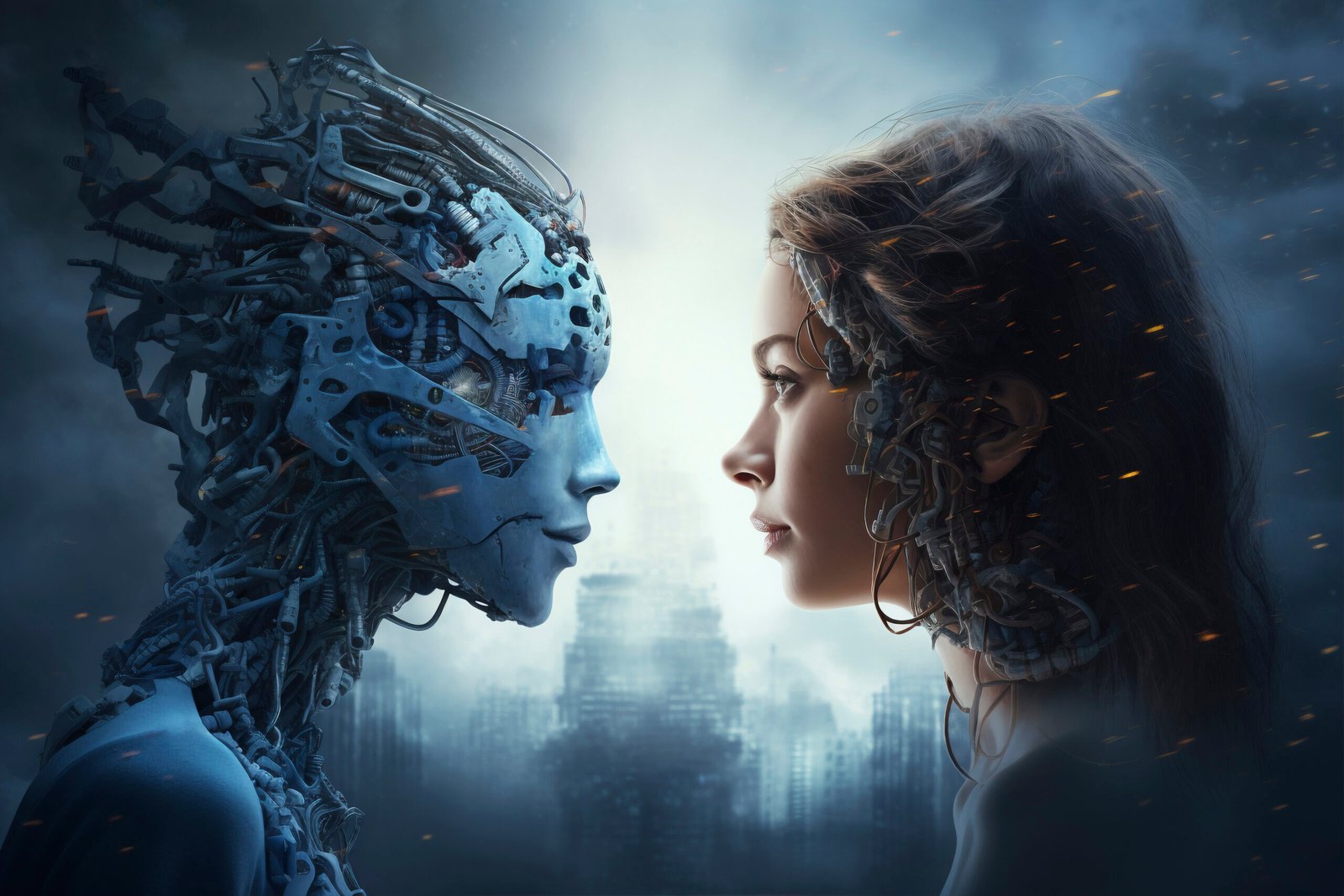Artificial Intelligence (AI) is no longer a distant promise on the horizon — it is actively transforming how organizations attract, develop, and retain talent. From automating routine tasks to enabling more precise decision-making, AI is redefining the very concept of human capital. In India, where diverse industries are undergoing rapid digitization, the implications of this transformation are vast and multifaceted.
As AI integrates deeper into workplaces, leaders must navigate the intersection of technology and human potential, ensuring that the workforce evolves alongside machines — not in competition with them. This shift is not only about adopting tools, but also about reimagining people strategies for an era where human capital is enhanced, augmented, and sometimes challenged by AI-driven systems.
The Evolution of Human Capital in the Age of AI
The role of human capital has always been a central driver of organizational success. However, AI introduces a new paradigm. Traditional skill sets, once sufficient to sustain competitive advantage, are becoming outdated at unprecedented speeds. Instead, adaptability, digital literacy, and creative problem-solving have emerged as the most sought-after capabilities.
In sectors like manufacturing, BFSI, healthcare, and retail, AI-powered predictive analytics and machine learning algorithms are reshaping everything from workforce scheduling to risk assessment. Human capital in the age of AI is no longer measured only in terms of knowledge and experience, but also in the ability to interact meaningfully with intelligent systems.
This evolution also shifts the HR function from administrative oversight to strategic foresight. HR leaders are now tasked with integrating AI into talent acquisition, performance management, and learning frameworks — ensuring that technology augments human capability rather than replaces it.
Reskilling and Upskilling in an AI-Driven Economy
A major implication of human capital in the age of AI is the urgency of reskilling and upskilling. McKinsey research suggests that by 2030, over 375 million workers worldwide may need to switch occupational categories or learn new skills due to automation and AI adoption. For India, with its vast and young workforce, the challenge — and opportunity — is even greater.
Organizations that invest in targeted learning initiatives are already gaining an advantage. For example, tech-enabled platforms are using AI to create personalized learning paths, ensuring that employees receive relevant training at the right pace. AI-driven simulations are allowing employees to practice complex problem-solving in risk-free environments, accelerating skill acquisition.
However, reskilling is not just about technical competencies. Soft skills — empathy, leadership, critical thinking — remain irreplaceable in the human-AI equation. Balancing technical mastery with emotional intelligence will define the most valuable professionals in the future workforce.
Human-AI Collaboration and Workforce Redesign
Rather than framing AI as a replacement for human workers, forward-thinking leaders are focusing on human-AI collaboration. This model leverages the strengths of both parties — machines excel at processing vast amounts of data with speed and accuracy, while humans bring creativity, judgment, and ethical reasoning.
In industries such as customer service, AI chatbots handle high-volume, routine queries, freeing human agents to focus on nuanced and emotionally sensitive interactions. In manufacturing, AI-powered robots perform repetitive, precision-based tasks while human technicians oversee production quality and manage innovation pipelines.
Workforce redesign in the age of AI also involves redefining roles and responsibilities. Job descriptions are becoming more fluid, and project-based work is replacing rigid hierarchies. Agile structures enable organizations to respond quickly to market changes and technological disruptions.
Ethical Considerations in the Age of AI
While the integration of AI brings unprecedented efficiency, it also raises significant ethical questions. How should organizations address biases in AI algorithms? How can employee data be protected in a world where monitoring tools are increasingly sophisticated?
Responsible AI adoption requires transparency, fairness, and accountability. HR leaders must work closely with technology teams to ensure that AI systems are designed and deployed in ways that promote diversity, equity, and inclusion. Ethical governance frameworks — backed by training for managers and employees — will be crucial in sustaining trust in AI-driven workplaces.
Leadership’s Role in Shaping Human Capital in the Age of AI
The transition into an AI-powered economy is not simply a technological project; it is a leadership challenge. Leaders must foster a culture where innovation is encouraged, failure is seen as a learning opportunity, and employees feel supported in navigating change.
Investing in leadership development for the AI era means equipping decision-makers with an understanding of both the technical aspects of AI and the human factors that influence its success. Leaders who can bridge this gap will be best positioned to harness AI as a catalyst for growth rather than a source of disruption.
Preparing for the Future of Work
Human capital in the age of AI represents one of the most profound shifts in organizational strategy in decades. Companies that embrace AI while prioritizing people will find themselves more resilient, innovative, and competitive in the years ahead. The winners of this transformation will be those who treat AI not as an end in itself, but as a tool to unlock the full potential of human talent.
The conversations on AI’s impact on people, work, and leadership are far from over — and they demand fresh insights, shared learnings, and actionable strategies. This is why the 6th Annual RethinkHR Conclave in Bengaluru on 26th September 2025 is a must-attend gathering for leaders, HR professionals, and change-makers shaping the future of work. Join us to explore how AI is redefining human capital and discover how your organization can thrive in this transformative age.

